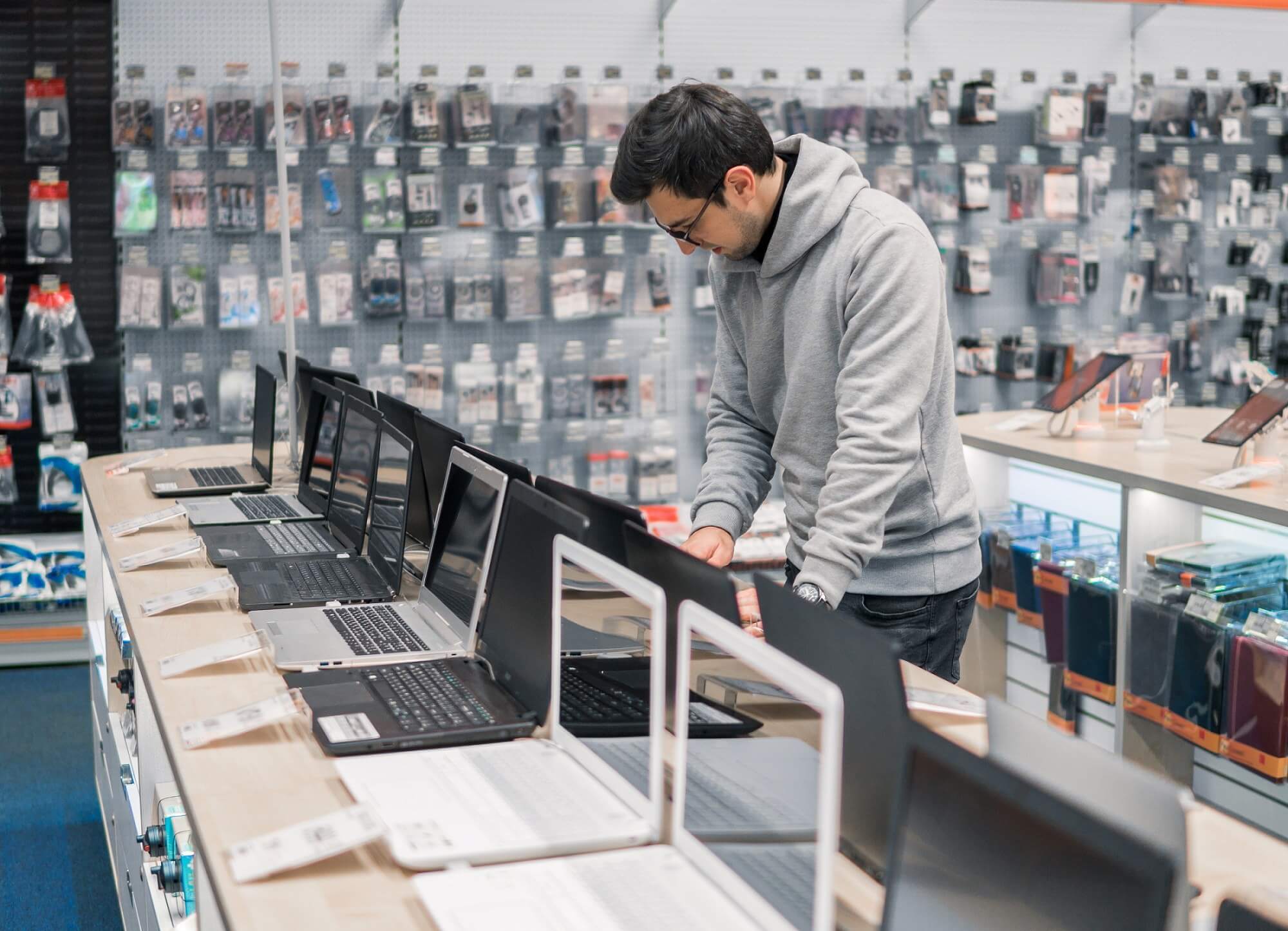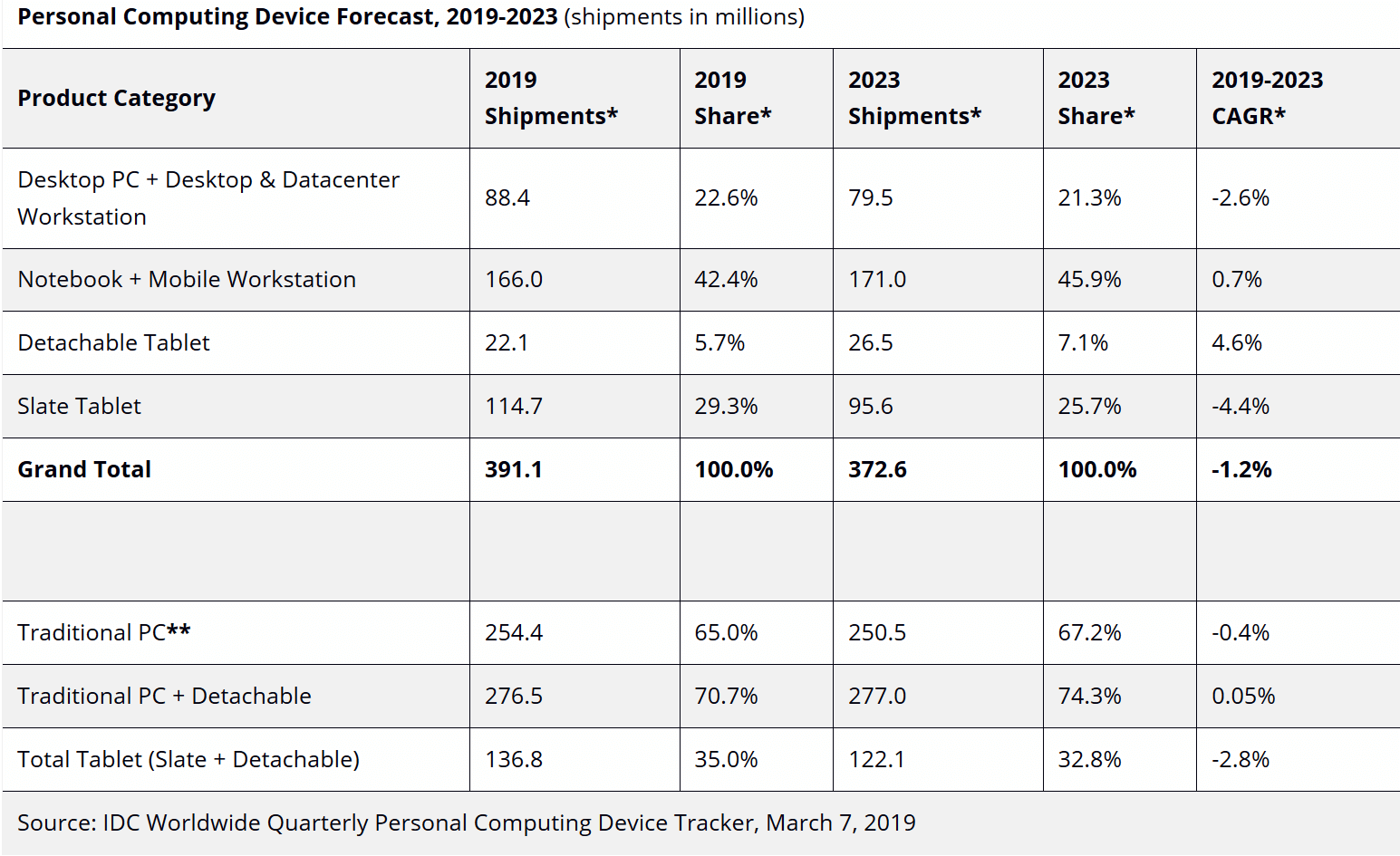Forward-looking: Last year finally gave us reasons to be optimistic about PC sales, but the future isn’t looking as bright. A new report from IDC predicts that the worldwide personal computing devices (PCD) market, which comprises traditional PCs and tablets, will decline this year, a trend that will continue until at least 2023.

Last year, research firm IDC reported that Q2 2018 saw PC shipments experience the first year-over-year growth in six years. Ultimately, however, the market declined across the entire year, thanks partly to Intel’s CPU shortages. And while Chipzilla’s issues are improving, they’re expected to keep hampering the industry’s growth, especially when it comes to entry-level device volume.
IDC notes that gaming PCs may also face “short-term challenges,” thanks to Nvidia still working through its excess of graphics cards—a result of the crypto crash—and the high prices of its flagship RTX cards.
The report expects the PCD market to shrink 3.3 percent in 2019, and that decline is predicted to continue up to the forecast period of 2023, when it will have fallen from 391.1 million to 372.6 million units, representing a compound annual growth rate of -1.2 percent.
While traditional PC sales are expected to fall 0.4 percent between now and 2023, a large part of the overall decline comes from slates, which are predicted to drop by 4.4 percent. There is some good news for manufacturers of detachables; 2-in-1s look set to grow 4.6 percent over the next few years.
Although the commercial PC market is expected to see a small decline in 2019, the commercial notebook forecast has been raised. IDC adds that a large number of last-minute Windows 10 migration projects will complete this year, likely due to extended support for Windows 7 coming to an end.
“While the long-run PCD market remains in persistent decline, the constitution of the market continues to churn for the better,” said Linn Huang, research director for Devices and Displays at IDC. “And with ray-tracing ramping up and 5G-connected, dual-screen, and foldable devices on the not-too-distant horizon, consumers and professionals will likely find something compelling at the premium end.”
